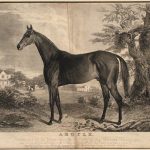“TRUTH TO POWER” PANELISTS: INCREASING DIVERSITY IS KEY
The Thoroughbred industry needs to do more – much more – to reach out to, attract, and welcome women, people of color, and other minorities if wants to thrive in the future.
That was the general consensus of participants in Wednesday’s “Truth to Power” panel (video above) presented by The Racing Biz, working in conjunction with Alicia Hughes of the National Thoroughbred Racing Association and teacher and freelance journalist Teresa Genaro.
Wednesday’s session was the first of several planned virtual panels and focused on where the industry is now, and why increasing diversity and inclusion matters. The next two are scheduled for March 17 and April 7. The series is designed to address issues of diversity and inclusion, and the future of the Thoroughbred industry.
“It’s no secret right now that the industry is struggling to attract new fans [and other participants],” bloodstock advisor Greg Harbut said of a sport that has seen wagering handle fall by about 50% in constant dollars over the last 20 years. “It’s very difficult for me to get people of color into this business.”
In part, Harbut, a third-generation horseman, said, that’s because of how the sport is seen.
“It’s perceived as an old-guard sport, an elitist sport,” he said.
Many in racing counter that the sport is welcoming and point to the prevalence of non-White trainers, jockeys, and other backstretch workers. But Harbut said that only goes so far.
- Mid-Atlantic three stars: July 14, 2025
 Your five-minute read to catch up on racing highlights from around the Mid-Atlantic this past week!
Your five-minute read to catch up on racing highlights from around the Mid-Atlantic this past week!
“The backstretch may be open, but what about the frontside?” he asked. “There’s no representation at the key core leadership positions in racing.”
Rose Grissell, Head of Diversity and Inclusion at the British Horseracing Authority, which has launched a Diversity in Racing Steering Group (DiRSG), said that the sport’s welcome may not extend as far as we think.
“We feel we are inclusive and welcoming,” she said. “But that’s only to certain people and not to all people.”
She said that racing’s front door may be open, but some people aren’t coming through it. For one reason, there may be “hidden, subtle barriers.” For another, she said the sport is “simply not engaging” with certain groups of people.
The DiRSG has created a “Racing with Pride” program to encourage LGBTQ participation in racing, and it’s pushing British racing’s stakeholder groups to ensure that at least 30 percent of members of their boards of directors be women.
The costs of failing to take such steps could be catastrophic to the industry, panelists said. In the United States, for example, non-White people are projected to be a majority of the population by 2045. A shrinking industry that fails to develop effective strategies to engage women and minorities will feel the effect of that failure on its bottom line.
- Argyle and Thoroughbred racing in the 1830s
 Connected to Supreme Court justices and governors, the Maryland-bred Argyle became one of the best horses of the 1830s. His story.
Connected to Supreme Court justices and governors, the Maryland-bred Argyle became one of the best horses of the 1830s. His story.
Ray Daniels, who with Harbut co-owns 2020 Kentucky Derby runner Necker Island, served as the Director of Diversity and Minority Affairs for Waffle House Inc. and later was Senior VP of Operations there. He now runs Equity Solutions Group, a strategic sourcing company.
“We have conclusive data across the board that diverse and inclusive organizations are more proficient and make more money than companies that aren’t,” he said.
What’s more, those companies are more likely to compete for the best talent of all colors, genders, and backgrounds. Daniels calls that fight to find the best talent, regardless of other characteristics, a “workforce arms race.”
Participants pointed to other sports, which they say are farther down the road to inclusivity than is racing. NASCAR, for example, is working to shed its image as a sport hostile to Blacks and other minorities. In 2020, it banned the display of Confederate flags at its events, among other steps, a move which perhaps alienated some longtime fans but may open the door to attracting a far greater number.
“You have to be willing to lose something to gain,” said Alicia Hughes.
LATEST NEWS















I want to see and hear the Carmouche interview.
Where can I find it?
Not sure where it lives. Might have been on Instagram.